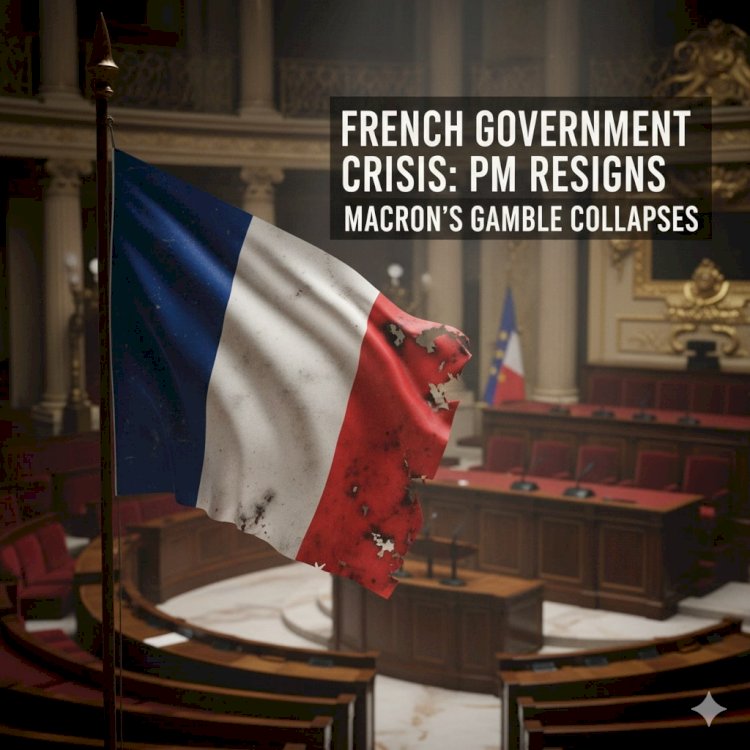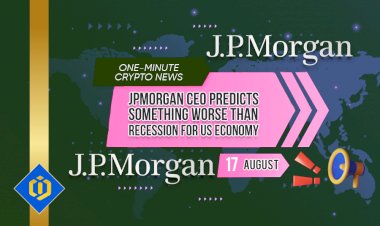French Political Earthquake: PM Resigns Hours After Naming Cabinet, Deepening Macron's Crisis

PARIS, France – October 6, 2025 – France has been plunged into its deepest political crisis in years as Prime Minister Sébastien Lecornu resigned on Monday, a mere 27 days after his appointment and less than 14 hours after announcing his new government. His historic short tenure marks a critical new low in President Emmanuel Macron's struggle to govern a divided nation.
President Macron accepted Lecornu’s resignation, which underscores the paralyzing instability caused by a hung parliament and the escalating fiscal emergency facing the Eurozone's second-largest economy. Lecornu becomes the shortest-serving prime minister in the modern French Fifth Republic.
A Government Collapses in Hours
Lecornu, a key ally of President Macron, was tasked with the near-impossible mission of securing parliamentary support for an austerity budget designed to curb France's soaring deficit, currently almost double the EU's mandated limit.
However, the cabinet he unveiled late Sunday was immediately savaged by opposition parties and even from within Macron's own fragile coalition. Critics argued the largely unchanged lineup offered no fresh solutions to France's mounting problems and failed to deliver the "profound break" from past policies Lecornu had promised.
In a grim address Monday morning, Lecornu blamed "partisan appetites" and "egos" across the political spectrum for his inability to forge a working consensus, effectively declaring the country ungovernable under current conditions.
Market Turmoil and Calls for Elections
The abrupt collapse of the government—the third in just a year—sent immediate tremors through global financial markets. The Paris CAC 40 stock index saw a sharp decline, and the euro weakened as investors reacted to the escalating political uncertainty surrounding France's massive public debt, now approximately 114% of GDP.
The current political gridlock stems from snap legislative elections called by President Macron in 2024, which resulted in a highly fragmented National Assembly. Power is now precariously balanced between the left-wing NUPES alliance, Marine Le Pen's far-right National Rally, and Macron's centrist bloc, with no single group commanding a stable majority.
Opposition leaders were swift to demand decisive action:
-
Marine Le Pen’s National Rally (RN), along with party leader Jordan Bardella, immediately called for President Macron to either dissolve parliament and trigger new snap elections or resign. "There cannot be a return to stability without a return to the ballot box," Bardella asserted.
-
The radical left France Unbowed (LFI) reiterated its demand for President Macron’s resignation.
Macron's Precarious Crossroads
President Macron now faces an extremely difficult choice among three high-stakes options:
-
Appoint a fourth Prime Minister: A solution that risks another swift failure and further paralyzing the government.
-
Dissolve the National Assembly: Calling new general elections carries the immense risk of a strong performance, or even victory, for the far-right National Rally, a scenario Macron has vehemently fought to avoid.
-
Resign: A move he has consistently ruled out, but one that would trigger an early presidential election, potentially opening the door to a radical shift in French leadership.
For the immediate future, Lecornu’s outgoing cabinet will remain in a caretaker capacity, managing essential daily affairs while the nation awaits President Macron's next move in this rapidly unfolding political drama.

 content-team
content-team 


















